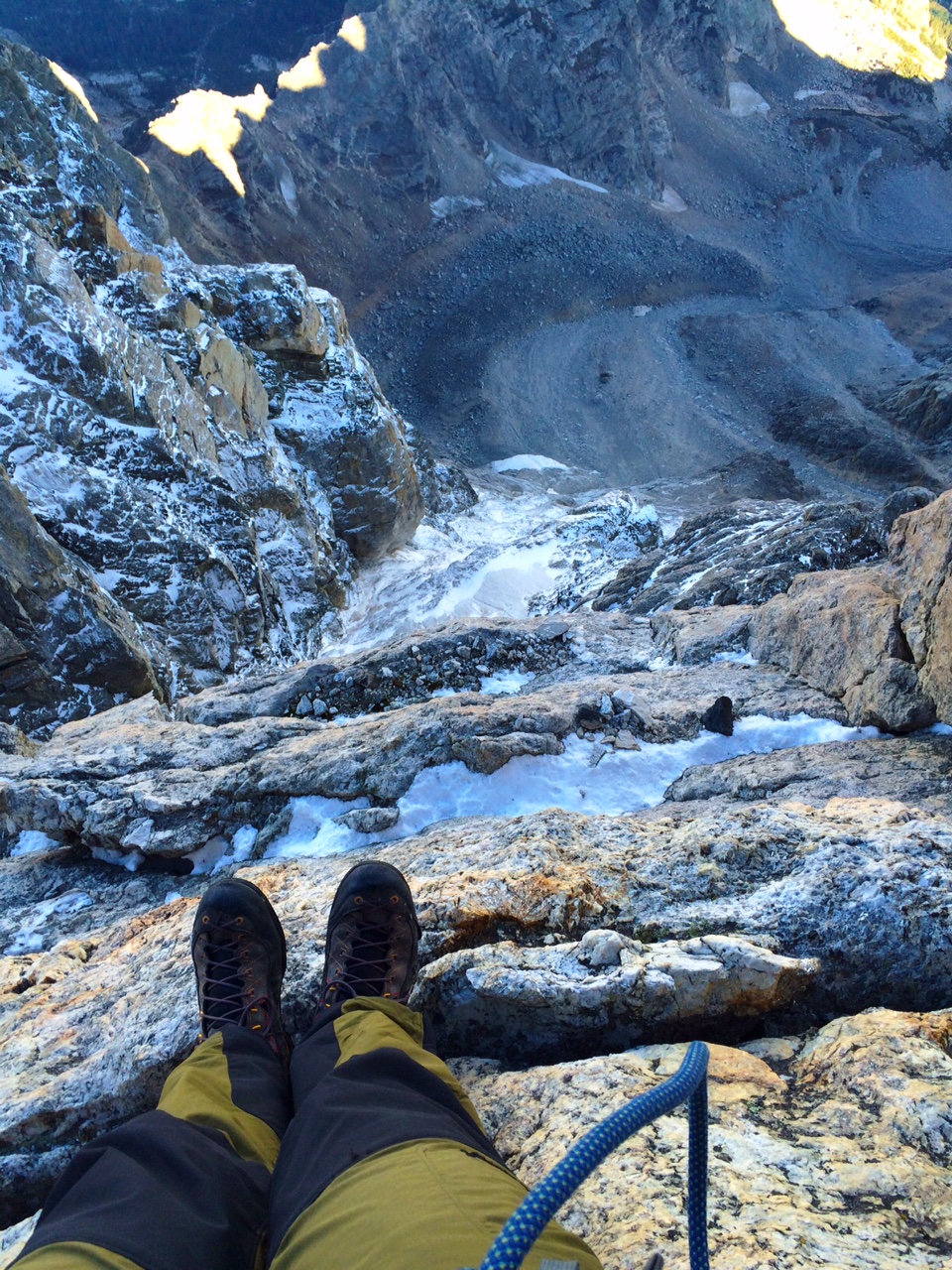
By Rob Shaul
The mountain doesn’t care about you, your future, the loved ones at home waiting for you to return, how good you are, how good you think you are, how much you know, or don’t know.
The mountain has its own soul, mind, spirit, schedule, beauty and … brutality.
Your enjoyment and safety are not it’s consideration.
You may love the mountain, but the mountain … Does. Not. Love. You.
The mountain does its thing – rock slide/rainbow, avalanche/wildflowers, sudden storm/morning dew, falling tree/bubbling brook.
It’s up to the athlete to stack the odds in his or her favor. Refuse to show respect at your own peril.
“Respect the Mountain” means being physically fit, mountain aware, getting an alpine start, layered up appropriately, ready for the unexpected, properly fueled and hydrated, constantly re-assessing the situation, doing things right, and safe, always.
It means being technically skilled in your mountain sport, solid with the fundamentals, understanding what to do in an emergency, practicing it, and having the proper, well-maintained equipment.
Author Lt. Col. Dave Grossman describes the overall attitude of a soldier in combat ( I’m paraphrasing here.)
At first, he writes, soldiers believe they are invincible, and they’ll never get hit.
Then, after experiencing combat and it’s seeming random violence, they become convinced for sure that they are going to get hit.
Then, later, after more combat, they come to understand that the longer they are in the combat zone, the greater the chance they’ll be a victim of violence.
Preparation, skill, safety, care, fitness – these can all help, but the randomness of combat is cold-hearted. The more time in the danger zone, the greater the chances of injury.
I’ve thought of this progression often, and it’s application to the mountains, especially for the senior mountain guides and most experienced professional mountain athletes we work with here – folks who are in dangers’ way, a lot.
The best guides, and most professional athletes, intuitively understand this, and it shows in how they prepare – physically, technically, equipment choices – and how they move through the mountains: deliberately, watchful, on guard.
Their packs are never the lightest. They never move the fastest. They are super aware, always. Danger ends at the car.
Perhaps most important, they choose their partners very carefully. Young and reckless never get picked for a trip.
Here in Wyoming, people die in the mountains all the time – rafting accidents, bear attacks, falling rocks, climbing accidents, avalanches, ski fall trauma, exposure. For every death, there are numerous near misses.
I wonder, how many of those caught in one of these accidents or near misses, right when it happens and they realize what is happening, say to themselves, “I never thought it could happen to me.”
This is what the combat vets and the mountain professionals know -“It can happen to me,” and the longer I’m in the game, the higher the chance it will.”
You Might Also Like MTI’s Alpinist Fitness Assessment
